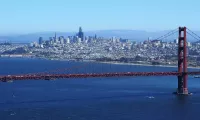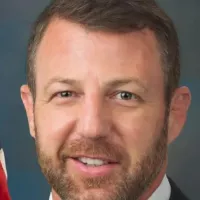Japan is an East Asian island country located in the Pacific Ocean. The archipelago comprises four major islands and over 14,000 smaller ones. It's divided into 47 prefectures and eight regions, with a largely mountainous terrain that concentrates the population and agriculture on the eastern coastal plains. As of 2026, Japan has a population of nearly 123 million, making it the world's 11th most populous country. Tokyo serves as its capital and largest city.
1900: Japan extends along the Pacific coast of Asia
Japan stretches over 3000 km (1900 mi) northeast–southwest from the Sea of Okhotsk to the East China Sea.
1912: Taisho democracy period
In 1912, the Taisho democracy period started.
1926: End of Taisho democracy
In 1926, the Taisho democracy period ended.
1931: Invasion of Manchuria
In 1931, Japan invaded China and occupied Manchuria, escalating its expansionist policies.
1932: Establishment of Manchukuo
In 1932, Japan established the puppet state of Manchukuo in occupied Manchuria.
1933: Resignation from League of Nations
In 1933, following international condemnation of its occupation of Manchuria, Japan resigned from the League of Nations.
1935: Population Doubling
By 1935, the Japanese population had doubled from 35 million in 1873 to 70 million, accompanied by significant urbanization.
1936: Signing of Anti-Comintern Pact
In 1936, Japan signed the Anti-Comintern Pact with Nazi Germany, aligning itself with authoritarian regimes.
1936: Nippon Professional Baseball Established
In 1936, Nippon Professional Baseball (NPB), Japan's top professional baseball league, was established.
1940: Invasion of French Indochina
In 1940, the Empire of Japan invaded French Indochina, leading to an oil embargo by the United States.
1940: Tripartite Pact
In 1940, the Tripartite Pact made Japan one of the Axis powers.
1941: Attack on U.S. and European Powers
In 1941, Japan attacked the U.S. and European colonial powers, officially entering World War II as an Axis power.
1941: Attacks on Pearl Harbor
On December 7-8, 1941, Japanese forces carried out surprise attacks on Pearl Harbor, British forces in Malaya, Singapore, and Hong Kong, beginning World War II in the Pacific.
1945: Unconditional Surrender
In 1945, after Allied victories and the atomic bombings of Hiroshima and Nagasaki, Japan agreed to an unconditional surrender, leading to significant territorial losses and the repatriation of settlers.
1945: Surrender in World War II
In 1945, after being defeated in the Pacific War and suffering atomic bombings, Japan surrendered, leading to Allied occupation.
1945: Soviet Union occupied the Southern Kuril Islands
In 1945, the Soviet Union occupied the Southern Kuril Islands, which Japan now contests Russia's control over.
1947: Adoption of New Constitution
In 1947, Japan adopted a new constitution emphasizing liberal democratic practices.
1947: Fundamental Law of Education
Since the 1947 Fundamental Law of Education, compulsory education in Japan consists of elementary and junior high school, lasting nine years.
1948: Public Holiday Law
The Public Holiday Law in Japan was enacted in 1948.
1952: End of Allied Occupation
In 1952, the Allied occupation of Japan ended with the Treaty of San Francisco.
1955: Liberal Democratic Party
Since the 1950s, often called the 1955 System, the Liberal Democratic Party has been the dominant party in the country.
1956: Membership in the United Nations
In 1956, Japan was granted membership in the United Nations.
1956: United Nations membership
Since 1956, Japan is a member state of the United Nations.
1968: Nobel Prize Winner
Yasunari Kawabata won the Nobel Prize in 1968.
1970: Environmental protection laws
In 1970, the government introduced environmental protection laws in response to rising concerns about pollution.
1972: Winter Olympics in Sapporo
Japan hosted the Winter Olympics in Sapporo in 1972.
1973: Oil crisis
In 1973, the oil crisis encouraged the efficient use of energy because of Japan's lack of natural resources.
1973: Universal Health Insurance
Since 1973, all elderly persons in Japan have been covered by government-sponsored health insurance.
1981: Principal cause of death
Since 1981, the principal cause of death in Japan is cancer.
1987: Privatization of Railways
Since privatization in 1987, dozens of Japanese railway companies compete in regional and local passenger transportation markets.
1992: J.League Establishment
The Japan Professional Football League (J.League) was established in 1992.
1994: Nobel Prize Winner
Kenzaburō Ōe won the Nobel Prize in 1994.
1995: Great Hanshin earthquake
In 1995, the Great Hanshin earthquake happened.
1997: Kyoto Protocol
As the host and signatory of the 1997 Kyoto Protocol, Japan is under treaty obligation to reduce its carbon dioxide emissions.
1998: Winter Olympics in Nagano
Japan hosted the Winter Olympics in Nagano in 1998.
2000: Happy Monday System
Beginning in 2000, Japan implemented the Happy Monday System, moving several national holidays to Mondays.
October 4, 2007: SELENE entered lunar orbit
On October 4, 2007, Japan's lunar explorer SELENE (Selenological and Engineering Explorer) entered a lunar orbit.
2008: Japanese Experiment Module added to ISS
In 2008, the Japanese Experiment Module (Kibō) was added to the International Space Station during Space Shuttle assembly flights.
June 11, 2009: SELENE deliberately crashed into the Moon
On June 11, 2009, the lunar explorer SELENE was deliberately crashed into the Moon.
2010: Population density in Honshu
As of 2010, Honshu has the highest population density at 450 persons/km.
2010: Launch of space probe Akatsuki
In 2010, Japan's space probe Akatsuki was launched.
2010: Nuclear power
In 2010, nuclear power was at 11.2% of energy in Japan.
March 2011: Fukushima Daiichi nuclear disaster
In March 2011, the Fukushima Daiichi nuclear disaster happened which led to public opposition of nuclear power.
2011: Tōhoku earthquake
In 2011, Japan suffered the Tōhoku earthquake, triggering the Fukushima Daiichi nuclear disaster.
May 2012: Nuclear power plants taken offline
In May 2012 all of the country's nuclear power plants had been taken offline because of ongoing public opposition following the Fukushima Daiichi nuclear disaster.
2014: Reclaimed land
As of 2014, approximately 0.5% of Japan's total area is reclaimed land.
2014: Ainu Language Status
As of 2014, the Ainu language was moribund, with only a few native speakers remaining.
2014: Official development assistance
In 2014, Japan donated US$9.2 billion.
2014: Consumer Video Game Market Gross
In 2014, Japan's consumer video game market grossed $9.6 billion, with $5.8 billion coming from mobile gaming.
2015: Television Viewing
According to the 2015 NHK survey, 79% of Japanese watch television daily.
2015: PC Game Market Ranking
By 2015, Japan had become the world's fourth-largest PC game market by revenue, behind China, the United States, and South Korea.
2015: Legislation for Peace and Security passed
In 2015, the Japanese parliament passed the Legislation for Peace and Security, allowing the JSDF to participate in foreign conflicts in an "existential crisis situation".
2015: Sendai Nuclear Power Plant restarted
In 2015, the Sendai Nuclear Power Plant restarted, and since then several other nuclear power plants have been restarted.
2015: Akatsuki achieved orbit around Venus
In 2015, the space probe Akatsuki achieved orbit around Venus.
April 2016: Integrated schooling program
Starting in April 2016, schools in Japan began integrating elementary and junior high school into a nine-year compulsory schooling program.
2016: Population density in Hokkaido
As of 2016, Hokkaido has the lowest population density of 64.5 persons/km.
2016: Japanese Newspapers
As of 2016, Japanese newspapers were among the most circulated in the world.
2016: Muslims in Japan
As of 2016, approximately 90% of Muslims practicing Islam in Japan were foreign-born migrants.
2016: Free and Open Indo-Pacific vision announced
In 2016, Japan announced the Free and Open Indo-Pacific vision, which frames its regional policies.
2016: World Risk Index
In 2016, Japan has the 17th highest natural disaster risk as measured in the World Risk Index.
2016: Fish Catch Statistics
In 2016, Japan ranked seventh in the world in tonnage of fish caught and captured 3,167,610 metric tons of fish.
2017: Road infrastructure
As of 2017, Japan has approximately 1,200,000 kilometers of roads, including city, town, village, prefectural roads, general national highways and national expressways.
2017: Keihin and Hanshin superport hubs
As of 2017, the Keihin and Hanshin superport hubs are among the largest in the world, at 7.98 and 5.22 million TEU respectively.
2017: Robotics Production Share
In 2017, Japan supplied 55% of the world's total robotics production.
2017: Quadrilateral Security Dialogue reformed
In 2017, the Quadrilateral Security Dialogue ("the Quad"), a multilateral security dialogue, was reformed with the aim of limiting Chinese influence in the Indo-Pacific region, along with the United States, Australia, and India.
2018: Low Violent Crime Rates in Japan
According to the United Nations Office on Drugs and Crime, as of 2018, the incidence rates of violent crimes such as murder, abduction, sexual violence, and robbery are very low in Japan.
2018: Large cooperative sector
As of 2018, Japan has a large cooperative sector, with three of the world's ten largest cooperatives, including the largest consumer cooperative and the largest agricultural cooperative.
2018: Agricultural Sector Statistics
As of 2018, the Japanese agricultural sector accounts for about 1.2% of the country's total GDP, with an agricultural self-sufficiency rate of about 50%.
2018: Christian Population
In 2018, Christians made up 1% to 1.5% of the Japanese population.
2018: Environmental Performance Index
In 2018, Japan ranks 20th in the Environmental Performance Index.
2018: Causes of death in Japan
In 2018, cancer accounted for 27% of total deaths in Japan, followed by cardiovascular diseases at 15%.
2018: Mosques and Muslims in Japan
In 2018, there were an estimated 105 mosques and 200,000 Muslims in Japan, with 43,000 being Japanese nationals.
April 1, 2019: Revised Immigration Law Enacted
On April 1, 2019, Japan's revised immigration law was enacted, protecting the rights of foreign workers to help reduce labor shortages in certain sectors.
May 1, 2019: Emperor Naruhito
On May 1, 2019, Naruhito became Emperor of Japan, beginning the Reiwa era, after his father Akihito's abdication.
2019: Energy Production Sources
As of 2019, 37.1% of energy in Japan is produced from petroleum, 25.1% from coal, 22.4% from natural gas, 3.5% from hydropower and 2.8% from nuclear power.
2019: Wildlife
As of 2019, Japan has over 90,000 species of wildlife, including the brown bear, the Japanese macaque, the Japanese raccoon dog, the small Japanese field mouse, and the Japanese giant salamander.
2019: Japan's Territory
As of 2019, Japan's territory is 377,975.24 km.
2019: Inbound tourism ranking
In 2019, Japan was ranked eleventh in the world for inbound tourism and its international tourism receipts amounted to $46.1 billion.
2019: Accession of Emperor Naruhito
In 2019, Naruhito succeeded his father Akihito upon his accession to the Chrysanthemum Throne, becoming the Emperor of Japan.
2020: Government initiative to increase shipbuilding exports
In 2020, a Japanese government initiative identified the shipbuilding sector as a target for increasing exports.
2020: Carbon-neutrality target
In 2020, the government of Japan announced a target of carbon-neutrality by 2050.
2020: Life Expectancy in Japan
In 2020, the overall life expectancy in Japan at birth was 85 years (82 for men and 88 for women), which was the highest in the world.
2021: Tokyo Olympics
In 2021, Tokyo hosted the 2020 Summer Olympics, making it the first Asian city to host the Olympics twice.
2021: Education Spending
Japan spent 7.4% of its total GDP on education in 2021.
December 2022: Increased defense spending instructed
In December 2022, Prime Minister Fumio Kishida instructed the government to increase spending by 65% until 2027.
2022: Japan's National Debt
As of 2022, Japan has the highest ratio of public debt to GDP among advanced economies, with a national debt estimated at 248% relative to GDP.
2022: Healthcare spending
In 2022, Japan spent 11.42% of its total GDP on healthcare.
2022: Tokyo Population
In 2022, the population of Tokyo, the capital city of Japan, was 13.9 million.
2023: Japan's Labor Force
As of 2023, Japan's labor force is the world's tenth-largest, consisting of over 69.2 million workers.
2023: Manufacturing Output Ranking
As of 2023, Japan's manufacturing output is the fourth highest in the world.
2023: R&D Budget and Researchers
As of 2023, Japan's research and development budget is the sixth or seventh highest in the world, with 907,400 researchers sharing a 22-trillion-yen budget.
2023: Service Sector's Contribution to Economic Output
As of 2023, Japan's service sector accounts for about 69.8% of its total economic output.
2023: Population in cities
In 2023, 92% of the Japanese population resided in urban areas.
2023: Tertiary Education Attainment
In 2023, Japan ranked third for the percentage of 25- to 64-year-olds with tertiary education, at 56%.
2023: Exports' Share of GDP
In 2023, Japan's exports amounted to 21.9% of its total GDP.
2024: Population Estimates
As of 2024 estimates, Japan has a population of over 123 million, of whom nearly 120 million are Japanese nationals.
2024: Japan's Unemployment Rate
As of 2024, Japan has a low unemployment rate of around 2.6%.
2024: Diplomatic network
In 2024, Japan had the fourth-largest diplomatic network in the world.
2024: Robotics Production Share
In 2024, Japan supplied 38% of the world's total robotics production.
2024: Japan's Global Peace Index and Military Budget
In 2024, Japan was the third highest-ranked Asian country in the Global Peace Index. It spent 1.4% of its total GDP on its defense budget and maintained the tenth-largest military budget in the world.
2024: Japan's Export and Import Status
In 2024, Japan was the world's eighth-largest exporter and sixth-largest importer. Its main export markets were China (22.2%, including Hong Kong) and the United States (20.6%). Its main import markets were China (22.3%), the United States (10.5%), and Australia (7.1%).
2024: Greater Tokyo Area Population
In 2024, the Greater Tokyo Area had a population of 37.4 million, making it the largest metropolitan area in the world.
2024: International tourist arrivals
In 2024, the country attracted 36.9 million international tourists.
August 5, 2025: Highest temperature
On August 5, 2025, the highest temperature ever measured in Japan, 41.8 °C (107.2 °F), was recorded.
2025: Elderly Population Percentage
As of 2025, over 29.3% of the population is over 65, or more than one in four out of the Japanese population.
2025: Number of Airports
As of 2025, there are 280 airports in Japan.
2025: Sanae Takaichi is Japan's prime minister
In 2025, Sanae Takaichi became Japan's prime minister.
2026: Japan Population
As of 2026, Japan's population is almost 123 million, making it the world's 11th most populous country.
2027: Projected increased defense spending completion
By 2027, Prime Minister Fumio Kishida instructed the government to increase spending by 65%.
2030: Plan to land astronauts by 2030
Japan's plans in space exploration include building a Moon base and landing astronauts by 2030.
2050: Carbon-neutrality target date
In 2020, the government of Japan announced a target of carbon-neutrality by 2050.
2060: Projected Elderly to Working Age Ratio
The Government of Japan projects that there will be almost one elderly person for each person of working age by 2060.
2065: Projected Population Decline
As a growing number of younger Japanese are not marrying or remaining childless, Japan's population is expected to drop to around 88 million by 2065.
Mentioned in this timeline

Basketball is a team sport played on a rectangular court...
The Union of Soviet Socialist Republics USSR existed from to...

The Second Sino-Japanese War fought between China and Japan from...

San Francisco is the fourth-most populous city in California and...
Germany officially the Federal Republic of Germany is a nation...
China officially the People's Republic of China is an East...
Trending
7 minutes ago Jeff Petry Traded to Minnesota Wild from Panthers Before Deadline

8 minutes ago Road Dogg departs WWE amid creative shakeup: End of an era.
9 minutes ago College Board Faces SAT Technical Issues, Kaskaskia Recognizes CTE Month

1 hour ago Federal Agents Remain in Minnesota After Border Czar Operation Ended: Key Takeaways
1 hour ago Majchrzak faces Mpetshi Perricard At BNP Paribas Open 2026, Indian Wells Prediction

1 hour ago Dimitrov Faces Atmane at Indian Wells: Predictions and Odds for the Opening Round
Popular

Ken Paxton is an American politician and lawyer serving as...

Hillary Diane Rodham Clinton is a prominent American politician lawyer...

Markwayne Mullin is an American politician and businessman serving as...

Jesse Jackson is an American civil rights activist politician and...

Jim Carrey is a Canadian-American actor and comedian celebrated for...

Bill Clinton served as the nd U S President from...